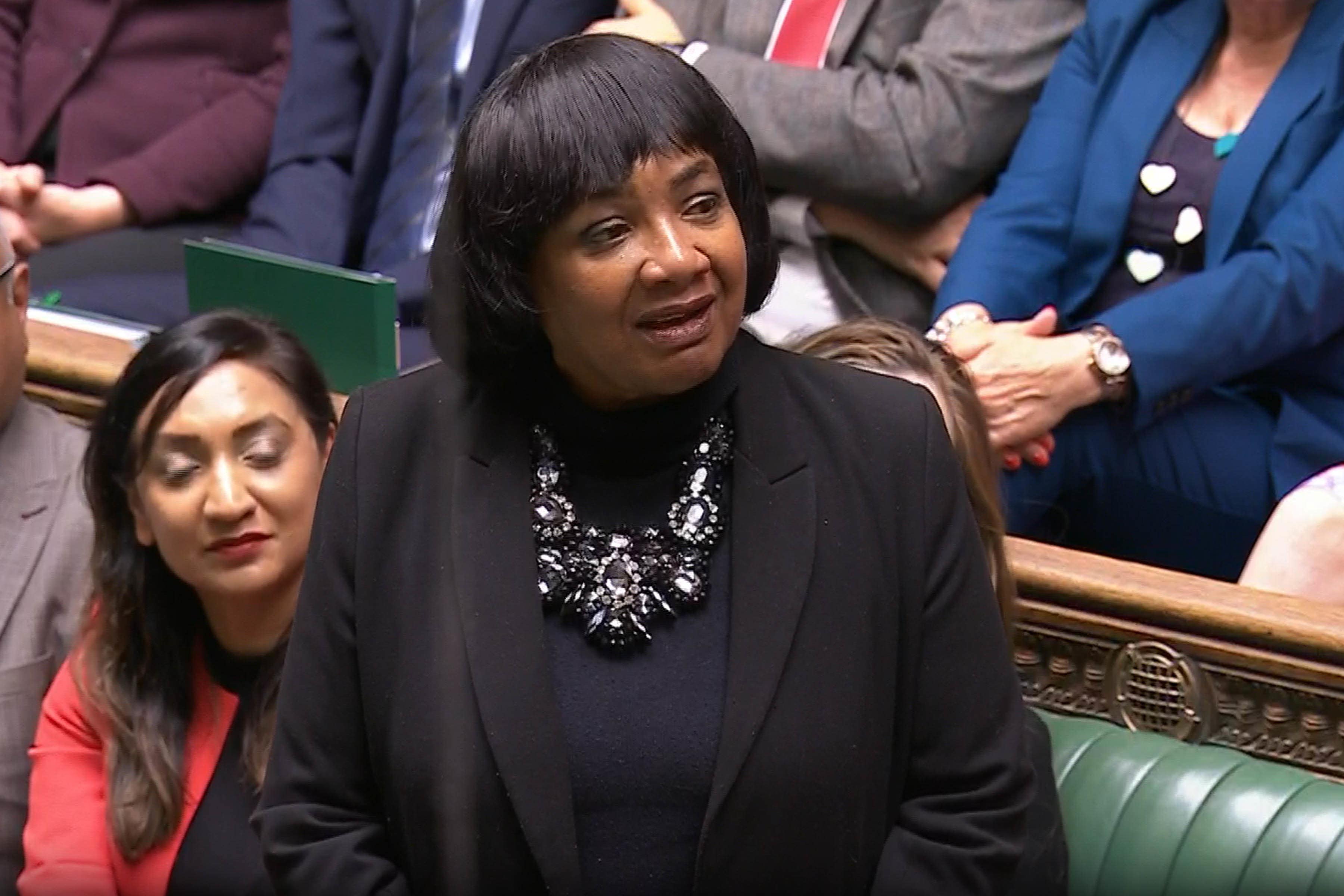Diane Abbott speaks for first time as Mother of the House
Ms Abbott faced uncertainty over her future as the Labour candidate for Hackney North and Stoke Newington at the start of the election campaign.

Your support helps us to tell the story
From reproductive rights to climate change to Big Tech, The Independent is on the ground when the story is developing. Whether it's investigating the financials of Elon Musk's pro-Trump PAC or producing our latest documentary, 'The A Word', which shines a light on the American women fighting for reproductive rights, we know how important it is to parse out the facts from the messaging.
At such a critical moment in US history, we need reporters on the ground. Your donation allows us to keep sending journalists to speak to both sides of the story.
The Independent is trusted by Americans across the entire political spectrum. And unlike many other quality news outlets, we choose not to lock Americans out of our reporting and analysis with paywalls. We believe quality journalism should be available to everyone, paid for by those who can afford it.
Your support makes all the difference.Diane Abbott celebrated the growing number of women MPs as she took up her new role as Mother of the House, following the turmoil which gripped the Labour party over her reselection.
The title is given to the woman MP with the longest continuous service.
Ms Abbott, 70, was first elected in June 1987 – becoming the first black woman elected to the House of Commons.
The Labour MP for Hackney North and Stoke Newington sat on the front row of the House of Commons benches, across the aisle from the Government frontbench where Sir Keir Starmer and his Cabinet sat.
I remember when I was a new MP, they just gave you a bunch of keys and told you to get on with it
Speaking for the first time as Mother of the House, she congratulated new Members of Parliament, telling them: “It is a great job and you will never regret coming here.
“I would also like to congratulate the officers of the House who have organised such a meticulous and careful induction. I remember when I was a new MP, they just gave you a bunch of keys and told you to get on with it.”
She added: “When I was a new member in 1987, there were only 40 female members of Parliament. Today we have 264, and some of us are glad that we have lived to see this.
“And I can’t speak about the increased numbers of female members of Parliament without referencing my predecessor Baroness Harriet Harman, who did so much to work to have an equal and diverse House.
“We are going into very tumultuous times, and historically, this House has played a role in these events both nationally and internationally. And I’m sure it will be the same going forward, and we will be presided over in the excellent way of the Speaker-elect.”
Among the MPs to pay tribute to Ms Abbott were Prime Minister Sir Keir Starmer, and Conservative leader and ex-prime minister Rishi Sunak.
Mr Sunak told the Commons: “We have our differences on policy but no-one can deny her important role in this House and the inspiration for so many young women of colour that she has provided.
“(Ms Abbott) is true in every sense of the word a trailblazer.”
In his speech, Sir Keir said he would make “a slight departure from convention” to pay tribute to his Labour colleague Ms Abbott.
The Prime Minister said she had “done so much in her career over so many years to fight for a Parliament that truly represents modern Britain”.
“We welcome her back to her place,” he added.
At the start of the General Election campaign, Ms Abbott faced uncertainty over her future as the Labour candidate for Hackney North and Stoke Newington.
Some newspaper reports suggested she had been offered a peerage to stand aside for a new prospective Labour MP in the safe seat, but she said this was untrue.
Ms Abbott had the Labour whip suspended during the previous Parliament after she suggested Jewish, Irish and Traveller people experience prejudice, but not racism, sparking a long-running process which saw her sit as an independent MP.
The whip was restored before the Parliament ended, but it was briefed out she might be “barred” from running for the party in the General Election.